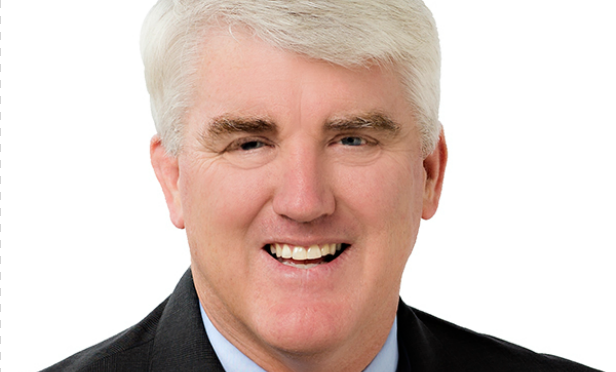 The City of Los Angeles has passed the proposed linkage fee. The new fee implements a tiered fee schedule with fees for housing projects ranging from $8 to $15. We sat down with Jon Goetz, a principal at Meyers Nave, to a talk about the new fee and how it will impact developers.
The City of Los Angeles has passed the proposed linkage fee. The new fee implements a tiered fee schedule with fees for housing projects ranging from $8 to $15. We sat down with Jon Goetz, a principal at Meyers Nave, to a talk about the new fee and how it will impact developers.
GlobeSt.com: What is your reaction to the linkage fee passing?
Jon Goetz: The Los Angeles linkage fee is being adopted at a time when local governments are greatly concerned about the ability of their workforce and residents to afford to live within their local jurisdictions due to the increasingly unaffordable price of housing. As the state has eliminated the redevelopment program and the federal government has reduced affordable housing funding, local jurisdictions are realizing that they can no longer rely on federal and state programs to finance affordable housing in their communities. More local jurisdictions are taking an increasingly active role by requiring affordable housing in new residential developments, and adopting fees and bond measures to finance affordable housing construction. The Los Angeles linkage fee differs from the “inclusionary zoning” approach taken by other California cities and counties, in which a specified percentage of affordable housing units is required in each new housing development. The linkage fee spreads the cost over both commercial and residential development, producing a larger and more diversified stream of funding. The Los Angeles approach is similar to several other large California cities that have also adopted linkage fees, including San Francisco, Oakland and San Diego.
GlobeSt.com: What does the final version of the new linkage fee, and how will it roll out over the next year?
Goetz: The linkage fee was adopted on both commercial and residential development projects to be used to fund the creation of affordable housing within the City. The City's new ordinance imposes a tiered fee schedule with rates for housing projects ranging from an $8 per square foot charged in “low market” areas of the City such as South Los Angeles and the San Fernando Valley, to a $15 per square foot fee in “high market” areas such as the more affluent Westside of the city. Smaller attached projects with five or fewer units will be charged a lower fee of $1 per square foot. Fees for commercial projects will range from $3 to $5 per square foot. The fee represents a substantial increase in the level of development fees charged by Los Angeles for real estate development projects. Some projects will be exempt from the fee, such as projects which include affordable units, nonresidential projects of less than 15,000 square feet, and homes and home additions of less than 1,500 square feet.
GlobeSt.com: How will this affect developers already underway on projects?
Goetz: The fee will not be charged on projects for which a building permit application or a complete planning or zoning application is submitted by the middle of May 2018. The fee will then be phased in at one-third of the full level until mid-November 2018, at two-thirds level until mid-May 2019, and the full amount thereafter. Developers pursuing project approvals should keep these dates in mind.
GlobeSt.com: How will this affect developers looking at potential development sites, and what do they need to know?
Goetz: The adoption of the linkage fee may provide a financial incentive for developers to build in neighboring cities with no or lower affordable housing fees and requirements, or in areas of Los Angeles with the lower fee rates such as the San Fernando Valley and South Los Angeles. Builders may also shift to the types of projects that are not required to pay the fee, such as acquisition and rehabilitation of existing buildings without expansion. The fee may encourage development of smaller housing projects with five or fewer units, which would be subject to the lower $1.00 per foot fee. The fee may also make density bonus projects more attractive to developers, in which a portion of the housing units are restricted as affordable units in exchange for additional building density and other incentives. These projects may be able to take advantage of the fee exemption for projects providing a minimum level of affordable units.
GlobeSt.com: How will the new linkage fee impact development in L.A.?
Goetz: Many in the business and real estate community are concerned that the fees will increase housing costs, but it is unclear who will ultimately bear the costs of the new fee. Developers could be constrained by market forces from passing along the entire amount of the fee to the tenants and buyers of their development projects. Landowners could also be affected by the fee if it causes a reduction in the prices that landowners can charge developers to acquire their properties. In the end, the scenario could be a cost that is absorbed by a combination of builders, land sellers, and end users of the affected development projects.
The business and real estate community has also raised concern that the new fee could slow down construction of new projects. The long phase-in period for the fee could help mute those effects and also offer a test of how the market will react. While it is unclear how much impact the fee will eventually have on market rate projects, the fee will certainly stimulate affordable housing development within the City. Affordable housing developers have been seeking new sources of funding since the elimination of the state's redevelopment program. The City estimates that the fee will generate up to $100 million annually, which could subsidize the creation of up to 1,500 affordable units per year. Fees will be used for a variety of affordable housing programs, including new construction, preservation of existing affordable units, rehabilitation, and homeownership down payment programs.
Want to continue reading?
Become a Free ALM Digital Reader.
Once you are an ALM Digital Member, you’ll receive:
- Breaking commercial real estate news and analysis, on-site and via our newsletters and custom alerts
- Educational webcasts, white papers, and ebooks from industry thought leaders
- Critical coverage of the property casualty insurance and financial advisory markets on our other ALM sites, PropertyCasualty360 and ThinkAdvisor
Already have an account? Sign In Now
*May exclude premium content© 2024 ALM Global, LLC, All Rights Reserved. Request academic re-use from www.copyright.com. All other uses, submit a request to [email protected]. For more information visit Asset & Logo Licensing.








